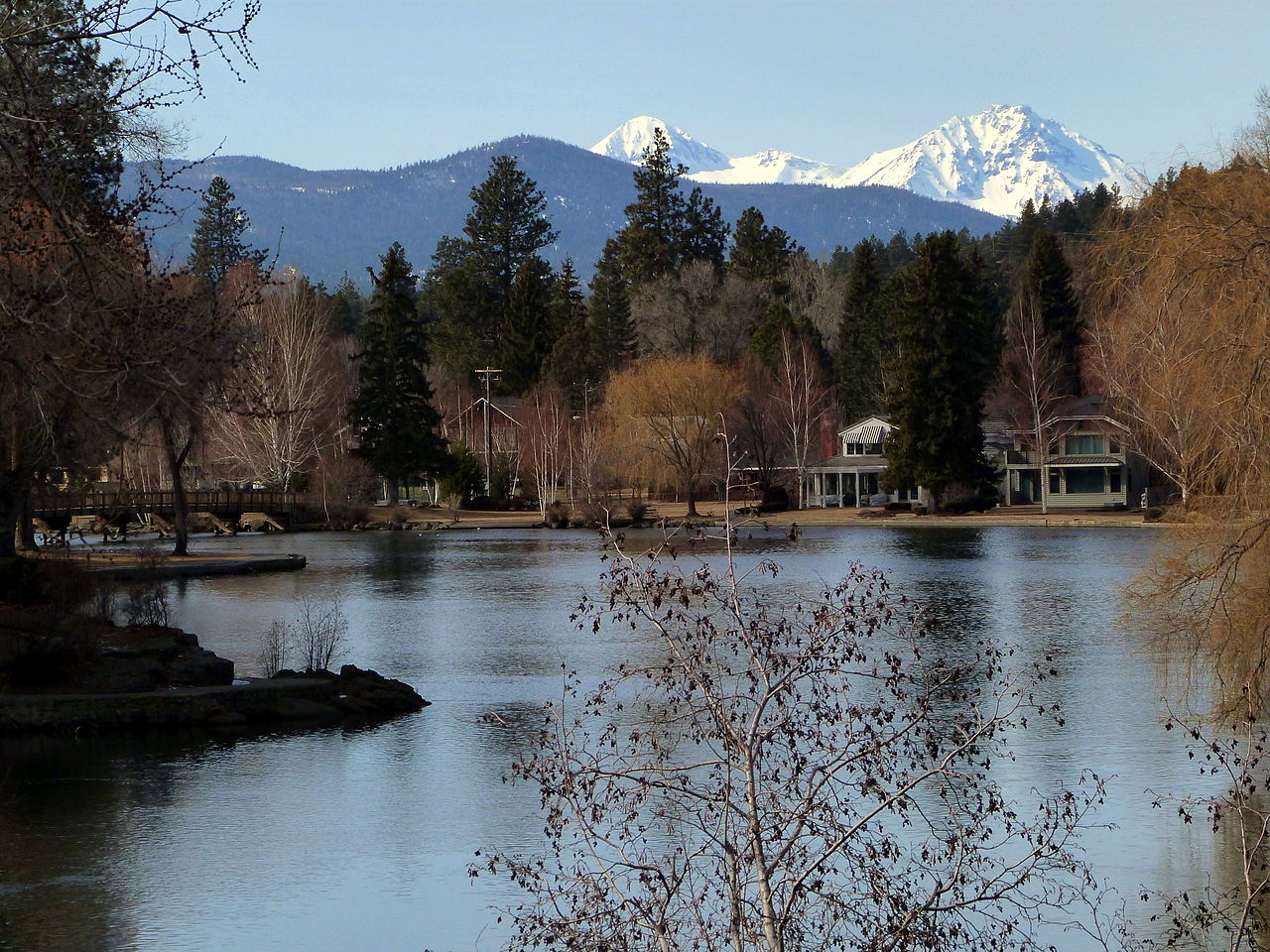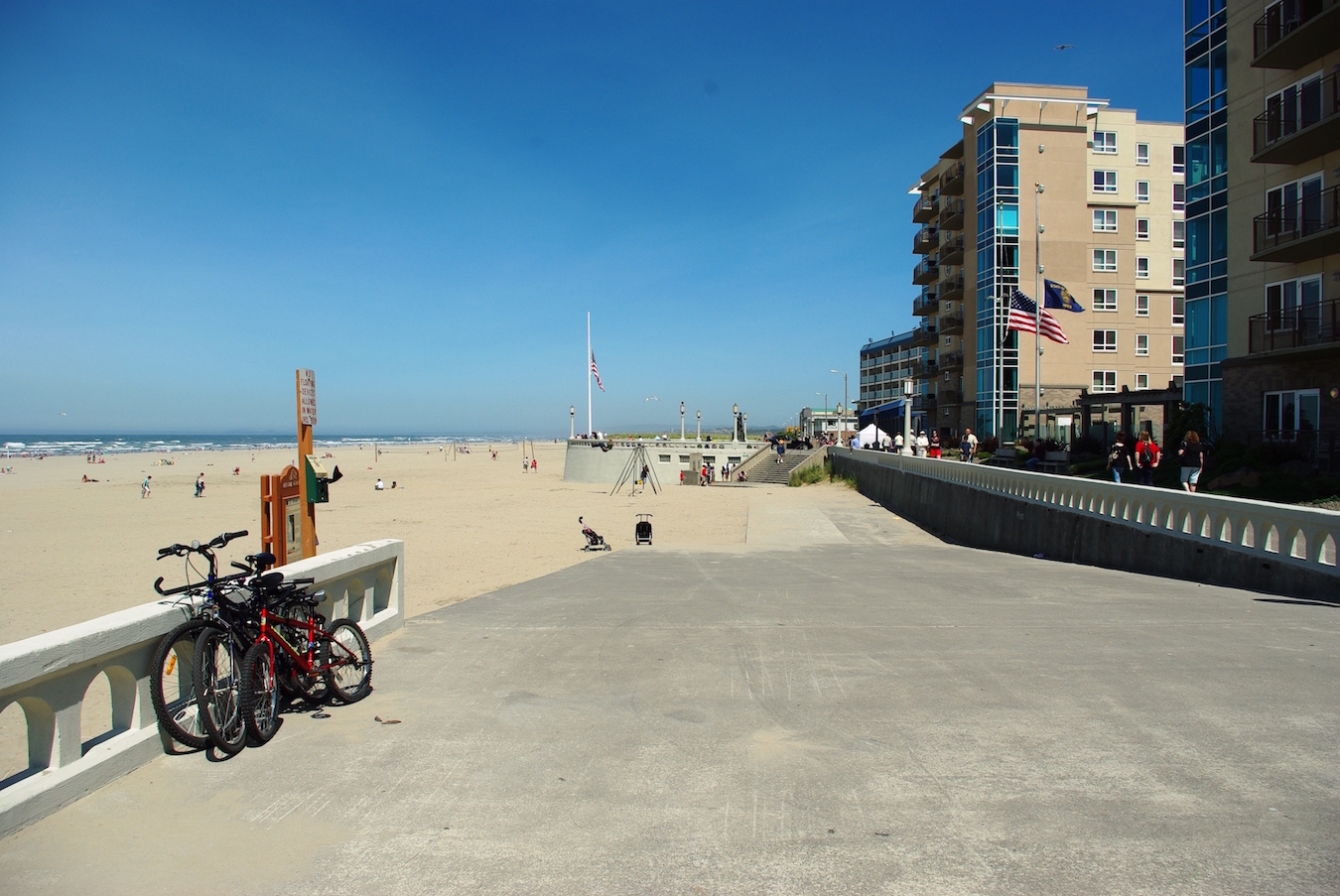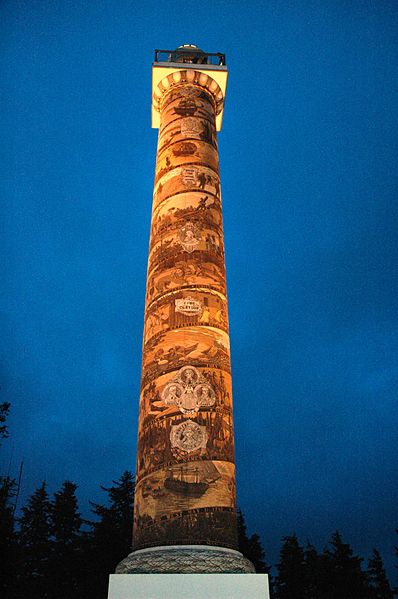Share this article! The Oregon Restaurant and Lodging Association sued the city of Bend last week for using tourism promotion funds to fix streets. The lawsuit is the latest flash point in a series of scuffles between hotel owners and cities over the meaning of tourism promotion. “I don’t think all the funds available for … Read more
The Oregon Restaurant and Lodging Association sued the city of Bend last week for using tourism promotion funds to fix streets. The lawsuit is the latest flash point in a series of scuffles between hotel owners and cities over the meaning of tourism promotion.
“I don’t think all the funds available for promotion are going to people actually doing the promoting,” said Don West, general manager of Cannery Pier Hotel and owner of the Astoria Crest Motel. In Astoria, “they like to say even fixing a pothole is a tourism-related event.”
City governments across the state contend they don’t have enough cash to keep essential public services up and running. So they use funds earmarked for tourism promotion for what they see as tourism-related projects that also happen to benefit residents. If the city fixes potholes, for instance, tourists will have a more pleasant experience driving around the city, and might be more likely to return in the future.
In a statement on the lawsuit, Bend officials said the city lacks an “adequate reliable stream of funding to meet all our street maintenance and construction needs.”

Mirror Pond, a popular tourist attraction in Bend
In 2003, Oregon passed a state lodging tax to fund Travel Oregon, a nonprofit that markets the state to tourists. Travel Oregon promotions contributed to $11.3 billion in direct travel–related spending in Oregon in 2016 and 109,500 jobs.
On top of the state tax, many cities charge separate local lodging taxes.
In Astoria and Bend, a majority of lodging tax money goes to a general fund the cities can use for whatever expenses they like. Sixty five percent of Bend’s $10 million in lodging tax revenue goes to the general fund, 56% in Astoria. The rest goes to a state-mandated tourism promotion fund. Regional PR and tourism agencies can use this money for advertising.
While Bend tried to fix its streets with its tourism promotion share, Yachats expanded parking space, and Astoria allocated funds for an aquatic center, parks, and river walk.
Related Story: Eco Zoned
“It’s fairly straightforward to say some of our top tourist and visitor amenities are city parks,” said Brett Estes, Astoria city manager. Without drawing from the 44% of lodging tax money in the “Promote Astoria” fund, he said, “the parks people come to Astoria to use would not be able to have a sustained level of care.”
From the perspective of hotel owners, tourism promotion means marketing campaigns like those produced by Travel Oregon, and other initiatives specifically targeted at getting more “heads in beds”: that is, getting more out of state visitors stay in Oregon hotels.

Hotels along the shorefront in Seaside
The hoteliers’ views are backed by ORLA, a powerful trade association that vigorously enforces what it sees the misuse of tourism funds, even in small cash-strapped Oregon towns. The association routinely sends letters to city governments questioning their use of local and state lodging taxes for purposes other than tourism promotion.
“It’s an ongoing battle,” said ORLA CEO Jason Brandt.
In 2015, ORLA sent a letter to the city of Yachats, discouraging the city from using its visitor amenities fund to purchase a vacant bank building. City officials approved the buy on the grounds that the additional parking space allowed the city to accommodate more tourists.
The city of Yachats appears to be struggling financially. Phone lines to some city council members don’t work. One hundred and fifty volunteers run key public services.
“Yachats has no paid staff to run the museum, or the library, trail construction and maintenance or the invasive plant program,” council member Greg Scott said in an email. “The city has no police department and the fire department is operated by a separate district. The building department for Yachats is run by the county.”
A 2016 state law expanded the definition of tourism promotion to include police costs and other expenses related to tourism. Debate remains over how strict the definition of tourism promotion should be, with local governments typically adopting a broad interpretation, and ORLA and hotel owners a narrower view.
Some local governments are reluctant to change the way they use lodging taxes that were put in place years ago, before a 2003 law created a state lodging tax earmarked specifically for tourism promotion, Bob Estabrook, a spokesperson for the Oregon Department of Revenue said.
The Astoria City Council voted this year to increase its hotel tax by 2%, partly to build and maintain “tourist-related” facilities including a new aquatic center.
 The Astoria Column, one of the area’s most visited tourist attractions
The Astoria Column, one of the area’s most visited tourist attractions
“We question whether a community aquatic center qualifies as a tourism facility,” Brandt said in an email.
Astoria City Attorney Henningsgaard wrote that, “A tourist-related facility is one that has a substantial purpose, not necessarily the main purpose, of providing for pleasure and recreation activities for people who travel more than 50 miles or stay overnight.”
He called the city’s parks, pools, and river-walk all “tourist-related facilities” saying 100% of their expenses could be paid with the new tax dollars.
Brandt empathized with city leaders constrained by tight budgets. But he said cities don’t need to siphon additional money from tourism promotion budgets for services like firefighting and police, when most revenue from lodging taxes already goes toward general city expenses.
West also said he thinks cities have enough in their general funds to cover basic expenses.
That doesn’t seem to be the case, at least in Astoria. Estes said the city has already slashed services that benefit locals in order to allocate the required amount to tourism promotion. The city has sponsored fewer community events this year and is selling off its parkland, an amenity enjoyed by locals and visitors alike.
“I really feel for the local governments,” Brandt said. “But there’s a direct correlation between tourism promotion and decisions to come to the community.”



